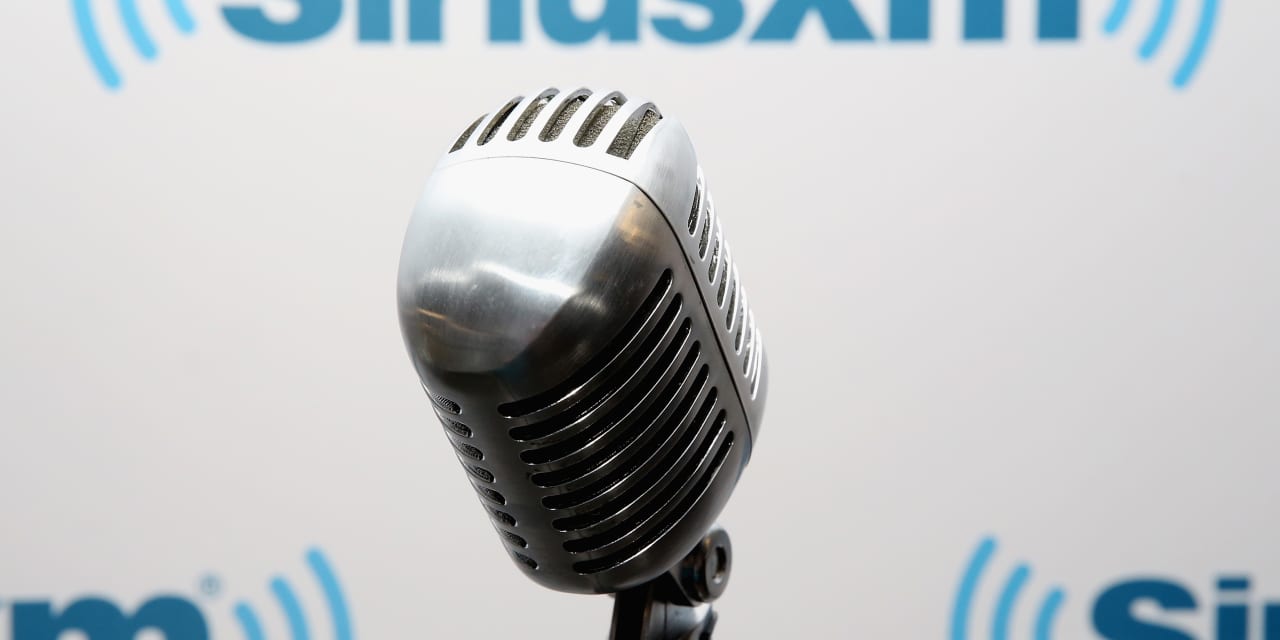A small purchase of stock in
Sirius XM
by
Berkshire Hathaway
is going a long way, but CEO Warren Buffett likely wasn’t the investor behind the purchase.
Sirius XM Holdings stock (ticker: SIRI) jumped 9.1% to $5.34 Wednesday, after Berkshire (BRK/B) disclosed Tuesday evening it had taken a very small stake in the satellite radio company. According to a quarterly 13-F filing, Berkshire bought 9.7 million shares of Sirius worth about $50 million in the third quarter, less than 1% of the company’s market value of $20 billion.
That’s a big stock move for what was a tiny purchase by Berkshire, which has an equity portfolio of about $350 billion. The jump might reflect, in part, a thin float in the shares, as 83% of Sirius’s 3.8 billion shares are controlled by Liberty Media and held by one of Liberty’s tracking stocks, Liberty SiriusXM Holdings (LSXMA).
Another possible factor behind the stock’s sharp rise is many investors like to follow Buffett’s moves—except Sirius likely wasn’t one of them.
The Sirius purchase probably was done by investment manager Ted Weschler, rather than Buffett himself. Weschler and his fellow manager, Todd Combs, run about 10% of the Berkshire portfolio and operate independently of Buffett, who runs the other 90%.
Berkshire watchers believe that Weschler is the manager behind Berkshire’s sizable stake of about 20% in the Liberty SiriusXM Holdings tracking stock.
Weschler is believed to be close to Liberty Media CEO Greg Maffei and is thought to have orchestrated a swap of Sirius stock held by Berkshire for Liberty SiriusXM tracking shares in 2021.
Berkshire didn’t immediately respond to a request for comment.
The new Sirius position would also be very small for a new holding by Buffett, who tends to like to make purchases of at least $3 billion for Berkshire.
Another likely reason for Wednesday’s rally is Sirius also has one of the highest short-interest ratios among Nasdaq 100 stocks, with about 171 million shares shorted, or nearly 30% of the public float. A short position is a bet that a stock price’s will fall, by borrowing and then selling the shares. However, a rapid rise in a highly-shorted stock, such as Sirius, can trigger a so-called squeeze, when short sellers rush to buy back the stock to limit their losses.
As a result, Sirius stock can be volatile and has been subject to short squeezes—including one in the summer when the stock popped to about $8 from $5 in a matter of days before falling back.
Based on what happened this summer, Sirius stock could decline soon.
The jump in Sirius stock is inflicting financial pain on arbitragers and other investors who have piled into a popular trade in which they buy the Liberty Sirius XM tracking stock and sell short Sirius—hoping to capitalize on a narrowing of the difference, or spread, between the stocks’ prices.
Liberty Media has proposed a transaction that would eliminate that spread: A distribution by Sirius of the underlying Sirius shares to the tracker holders to create a single stock for the satellite-radio company. That prospect has excited participants in this trade.
The Sirius/Liberty SiriusXM spread, however, has widened Wednesday, with Sirius effectively valued at 40% more than the Liberty tracking stock, Barron’s estimates, up from about 30% earlier this year. Liberty SiriusXM stock is up 3.1% to $26.60 Wednesday, trailing the gain in Sirius.
The huge spread may make it tough for a special committee of Sirius directors to approve the Liberty-friendly combination of Sirius and the tracking stock that was proposed in September.
Write to Andrew Bary at [email protected]
Read the full article here


